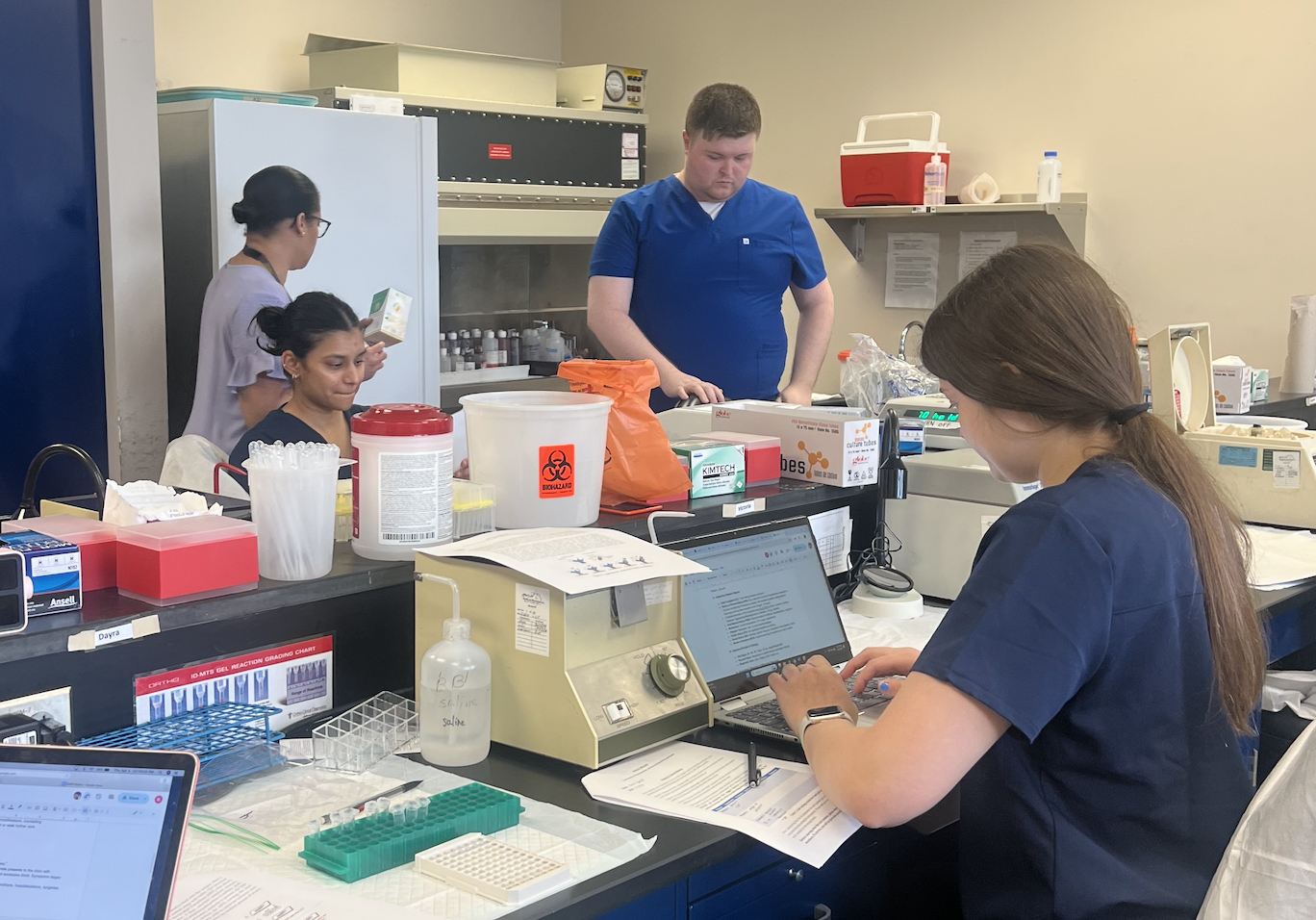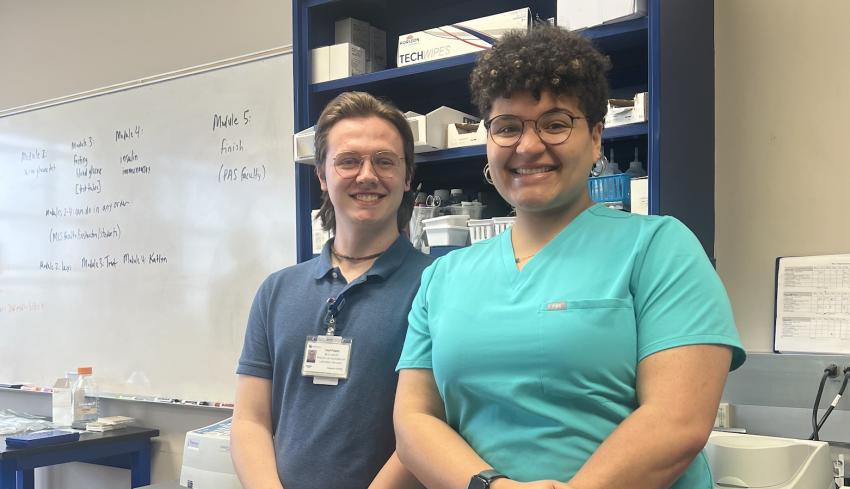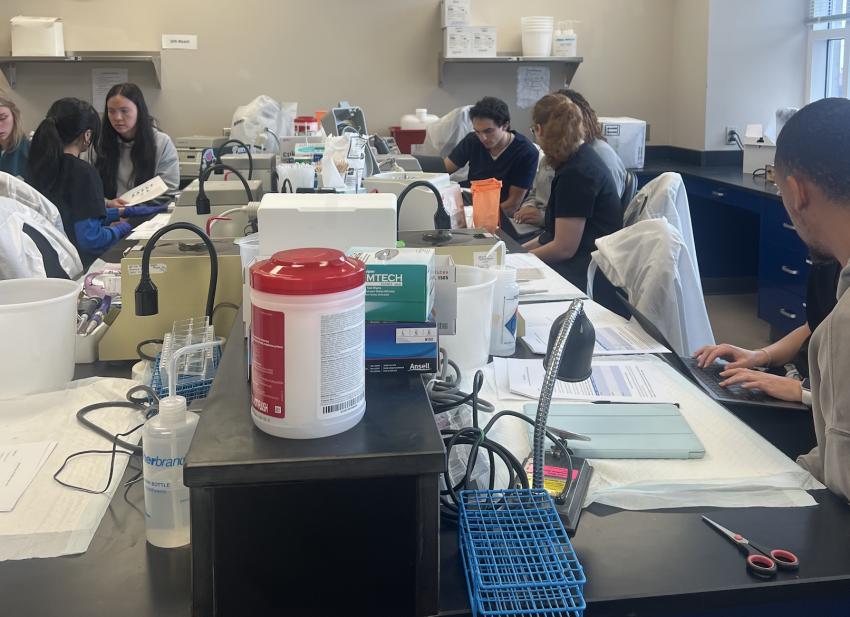PA, MLS Students Team Up for Escape Room Learning Activities
Apr 4, 2025

By Ella Rosner and Ryan Clark
CHS Contributors
Sometimes, even when you’re in the middle of class, you just need to escape.
Physician Assistant Studies and Medical Laboratory Science students were able to do just that Thursday as they participated in some experiential learning opportunities.
On April 3, more than 20 students from both disciplines joined together (on both the Lexington and Morehead campuses) in two sessions to engage in an Escape Room activity where teams interviewed patients to diagnose whether or not they have diabetes.
“There are a total of five modules that each team has to complete,” said Christopher Swartz, PhD, MLS (ASCP)CM and Assistant Professor in Medical Laboratory Science. “Modules 1 and 5 are geared more towards the PA students, as they will review patient records, make the actual diagnosis, etc. Modules 2, 3, and 4 are all diabetes-related lab testing that will be performed to help with the diagnosis.”

As more and more healthcare activities require professionals to work with others in different fields, activities like these should help better prepare students in the College of Health Sciences for their future careers.
Those who participated seemed to agree.
“I think it allows us to work interprofessionally with other professionals,” said Kylee Lawson, a Physician Assistant Studies major from Casey County, Ky. “It also gives us a better background of what goes on in labs and a better understanding of their side of things.”
“It’s cool to see interprofessional collaboration in real life,” said James Abu-Rahmeh, a Physician Assistant Studies major from New Smyrna Beach, Fla. “When we’re in the real world we will have to use it every day, but for now it’s cool to experience an academic version of it.”
Chad Guilliams, MEd, MLS (ASCP)CM and Assistant Professor in Medical Laboratory Science, said this is all part of the CHS curriculum.
“We’re trying to encourage interprofessional collaboration,” Guilliams said. “Not only is it fun and engaging and educational, but also, the students are able to educate one another about their practice.”
And apply that knowledge.
“I think it’s important to be able to apply what we’re learning in class,” said Yuri Takagawa, a Medical Laboratory Science student from Hawaii. “We get to work with PA students, which we will do in the future. It’s important to be able to communicate with other fields.”
